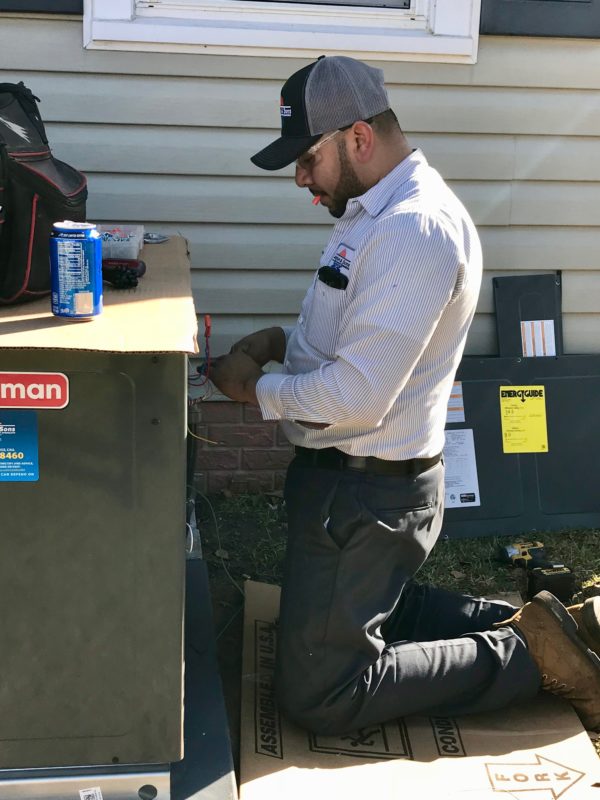The illnesses, shutdowns, and disruptions caused by Legionella in building plumbing systems are a constant risk to building inhabitants. To learn more about these threats, participants can enroll in Watts’ comprehensive 8-module course, Mitigating the Risk of Legionella, available exclusively on Watts Works Online or by visiting training.watts.com. This highly informative 2.5 hour course is Read more
education

The illnesses, shutdowns, and disruptions caused by Legionella in building plumbing systems are a constant risk to building inhabitants. To learn more about these threats, participants can enroll in Watts’ comprehensive 8-module course, Mitigating the Risk of Legionella, available exclusively on Watts Works Online or by visiting training.watts.com.


This highly informative 2.5 hour course is specifically designed for facility managers, engineers, and infection control professionals. Upon completion of the course, participants are accredited with 0.25 Continuing Education Units (CEUs) through the American Society of Plumbing Engineers (ASPE).
As an added incentive, those who complete the course between May 15 and June 26 will receive a free 12 oz. campsite mug.
For assistance in building an effective water management strategy, visit www.watts.com/solutions/legionella/legionella-resources.

The construction industry is dynamic, fast-paced, and challenging. You’ll need to stay on your game to succeed as a business owner. Construction contracting generally involves working with clients to complete construction projects and sometimes as a sub-contractor helping to fill a smaller niche within a larger job. As such, you may have limited control over Read more
The construction industry is dynamic, fast-paced, and challenging. You’ll need to stay on your game to succeed as a business owner. Construction contracting generally involves working with clients to complete construction projects and sometimes as a sub-contractor helping to fill a smaller niche within a larger job.
As such, you may have limited control over the final scope of the project and how much money you stand to make. Without the right coverage in place, this could leave your business vulnerable. Contracting is a risky business, which is why contractors need protection.

1. Have the Right Insurance in Place
Contractors need to get the right insurance coverage in place before they start working on a project. Without insurance, your business will pay for damages and injuries during work. Make sure you have general liability insurance that covers your business’s operations.
If you are involved in building a new home, you’ll want construction insurance. Homeowners’ insurance will not cover any contractors working on your property. If you own heavy equipment, get the proper insurance for it.
You should also have workers’ compensation insurance and surety bond insurance. This coverage ensures ethical business practices and compliance with building codes. You’ll want to find an insurance company that specializes in contractor insurance.
2. Stay Current on Training and Education
You should seek out training and education opportunities that will help you to improve your business. Don’t just focus on traditional education, but also on staying up to date on the latest technology and best practices.
You can do this by joining industry trade associations. These associations will help you stay connected with other contractors and the latest information; you should also consider taking classes and attending workshops. There are many training and education opportunities available to help build your skills.
Check with your state’s licensing board to see if they offer any training programs. Training and education opportunities can help you improve your time management skills, paperwork processes, and client communication skills.
3. Run a Background Check on Potential Employees
Workers play a critical role in the success of your contracting business. You must maintain a safe work environment; it starts with hiring the best possible employees. You can screen potential employees by conducting a background check.
It will help you gauge an applicant’s character and potential risk to your business. It can also help you avoid hiring somebody who has questionable work history. Make sure to conduct thorough and accurate background checks.
Background check services are available to help you with this process. Also, talk to your insurance company about any coverage they offer for hiring employees. Some insurance companies will provide coverage against negligent hiring.
4. Maintain a Strong Payment System
Contractors rely on getting paid for their work. A strong payment system is essential to keeping cash flowing smoothly. You should have a payment system in place before you start working on a project. Some contractors prefer a payment system that is a percentage of the project’s cost.
Other contractors prefer a fixed-price system. Before you choose a payment method, you need to consider how much experience and expertise you have working on that particular type of project. You should work with your client to establish a payment plan.
You should also create a payment plan that is realistic for your business. Take into account how much work is left to be completed, any costs involved in the project, your employees’ time, and other expenses.
5. Utilize Technology to Stay Protected
Protecting your data, equipment and employees goes beyond a strong payment system. Contractors can use technology to stay protected. Make sure to have a data backup system that protects your information during a disaster.
Modern contracting involves technology, so make sure all your hardware and software are up to date. It includes computers, software, cell phones, and other devices used in your business.
It will help decrease frustration and provide a better experience for your clients. Also, using technology in construction has made it much easier for contractors to stay in contact with their clients.
Conclusion
Much has changed in the construction industry over the years. Technology, insurance, and training are just a few examples. Fortunately, all of these changes have the same underlying theme; better protection for all parties involved. As a contractor, it is important to stay protected and keep up-to-date on industry trends to ensure the longevity of your business.

You’re invited to our complimentary educational series, Coffee with Caleffi™. The popular series is an online technical training webinar and is intended for engineers, contractors, designers and wholesalers. What’s next? Air-to-Slab Heat Pump Systems Thursday, Nov. 17 12:00 – 1:00 p.m. CST Technical Content Level: Intermediate REGISTER TODAY Air to water heat pump technology is steadily gaining traction. When a heat Read more
You’re invited to our complimentary educational series, Coffee with Caleffi™. The popular series is an online technical training webinar and is intended for engineers, contractors, designers and wholesalers.

What’s next?
Air-to-Slab Heat Pump Systems
Thursday, Nov. 17
12:00 – 1:00 p.m. CST
Technical Content Level: Intermediate
Air to water heat pump technology is steadily gaining traction. When a heat pump’s coefficient of performance is maximized, energy efficiency and resiliency benefits are substantial. How can engineers, designers and installers effectively apply this emerging technology to high thermal mass floor heating applications? Which commercial systems are good candidates for this type of design?
Hydronics expert John Siegenthaler, P.E. will detail the approaches that can best utilize this technology.
You’ll learn:
→ Do all air to water heat pump systems need buffer tanks?
→ How does the thermal mass of a floor slab compare to that of a buffer tank? → What is a simple way to control a heat pump supplying a heated floor slab? → What are the benefits of using constant circulation in “garage-type” floor heating systems?
Siegenthaler is a seasoned industry leader and passionate teacher, eager to share his over 40 years’ experience in the understanding and proper application of water-based engineering principles with our audience. He is the principal of Appropriate Designs and a regular contributor to industry publications.
It’s easy to join us. Simply register today!

Service Experts Career Academy (SECA) is partnering with the National Center for Construction Education and Research (NCCER) to offer a debt-free path to a lifelong career as an HVAC technician or plumber. The SECA program is training dozens of apprentices across the country to meet the growing demand for HVAC technicians and plumbers. According to Read more
Service Experts Career Academy (SECA) is partnering with the National Center for Construction Education and Research (NCCER) to offer a debt-free path to a lifelong career as an HVAC technician or plumber. The SECA program is training dozens of apprentices across the country to meet the growing demand for HVAC technicians and plumbers. According to the U.S. Bureau of Labor Statistics, 401,100 job openings for HVAC technicians are expected every year for the next decade. After a positive response to the HVAC training program, SECA and NCCER will also train aspiring plumbers beginning January 2023.
Service Experts welcomes any applicants interested in starting their professional careers debt-free. While trade schools, four-year colleges, associates degrees and other hands-on training programs can cost $7,000 or more annually, SECA pays HVAC apprentices throughout all four years of the training program, while giving them virtual, hands-on and ride along learning opportunities.

“We are opening our doors to anyone interested in taking that first step,” says Tom Essing, a SECA technical trainer in Michigan. “Whether you have prior experience or are a fresh mind with no experience at all, we want good, quality people who are enthusiastic about learning and are looking for a fulfilling career.”
“The construction and maintenance workforces are aging and it’s important we recruit and train the next generation of craft professions,” said NCCER President and CEO Boyd Worsham. “It will take all of us working together to make a real impact on the industry as we strive to fill the skills gap.”
In a traditionally male-dominated field, SECA is making strides by reaching out to women who might be interested in HVAC technician training. According to the U.S. Bureau of Labor Statistics, women only make up 1.5 percent of HVAC professionals and 2.1 percent of plumbers in 2021; however, nine percent of students in SECA are women.
“I’ve always had trouble finding a job that I could grow in. Thankfully the apprenticeship program has allowed me to do just that and get my certification in HVAC,” said Kailey Scott, a current apprentice in SECA. “In this field there are no limits, and I’m more than excited to exceed beyond my limits thanks to this program.”
“When I started working in HVAC, it was a male-dominated field, and now it’s changing to be more diverse,” says Essing. “It’s positive to see this shift and we look forward to continuing to support anyone interested in the HVAC field.”
In addition to paying apprentices, SECA offers a comprehensive employment benefits package made to support each student and their families on day one of their training. According to Essing, SECA wants to attract recruits away from other jobs by offering them the rounded benefits of a career, including two weeks of paid time off, a 401(k) plan with company matching and health insurance programs. Students also get a $1,000 tool kit with hand tools, gauges, electric beaters and more that is theirs when they complete the program. SECA graduates can also take advantage of Service Experts locations spread across the country. Service Experts serves over 90 locations across America, and certified program graduates have the opportunity to work with any Service Experts location, from San Francisco to Miami.
The pay, opportunities and benefits aren’t the only way that SECA accommodates aspiring HVAC technicians.
“Going virtual has helped get everyone together, all at the same time,” says Ken Benedetto, a SECA technical trainer in New York. “Having virtual class in the morning has been a huge benefit, students are ready to learn before they start their day.”
After completing their SECA training and earning their NCCER credentials, program graduates can earn more than many fields that require a four-year college degree, without having to navigate their lives around repaying expensive school loans.
“If you are looking for a career that will support you for your entire lifetime and give you four years of schooling without debt, jumpstart your future with Service Experts Career Academy,” said Jim Hughes, SECA director.

Optimal heating system design combines best practices on both sides of the flange. Designing, installing and maintaining perfect loops ensures that we deliver superior comfort, energy efficiency and reliability to our customers. Back by popular demand, Max Rohr welcomes Grundfos industry expert Brent Cunningham from The Perfect Loop training series to discuss hydronic heating systems Read more
Optimal heating system design combines best practices on both sides of the flange. Designing, installing and maintaining perfect loops ensures that we deliver superior comfort, energy efficiency and reliability to our customers. Back by popular demand, Max Rohr welcomes Grundfos industry expert Brent Cunningham from The Perfect Loop training series to discuss hydronic heating systems at the next Coffee with Caleffi™ webinar on Thursday, Oct. 20 in an extended edition from 12 noon – 1:30 p.m. CDT.

Cunningham is Grundfos HVAC OEM Business Development Manager serving as a sales engineer in the commercial and OEM business units. He enjoys cycling, running, skiing and other outdoor activities.
Rohr is Caleffi Education and Industry Engagement Manager leading industry connections with trade associations, committees, industry initiatives and collaborative manufacturer partners. He describes himself as an “energy nerd.”
The monthly educational webinars are free and are intended for engineers, contractors, designers and wholesalers. A Certificate of Attendance is emailed to attendees following the event for continuing education audits.
Please visit our website at www.caleffi.us for schedule details or register here today.
